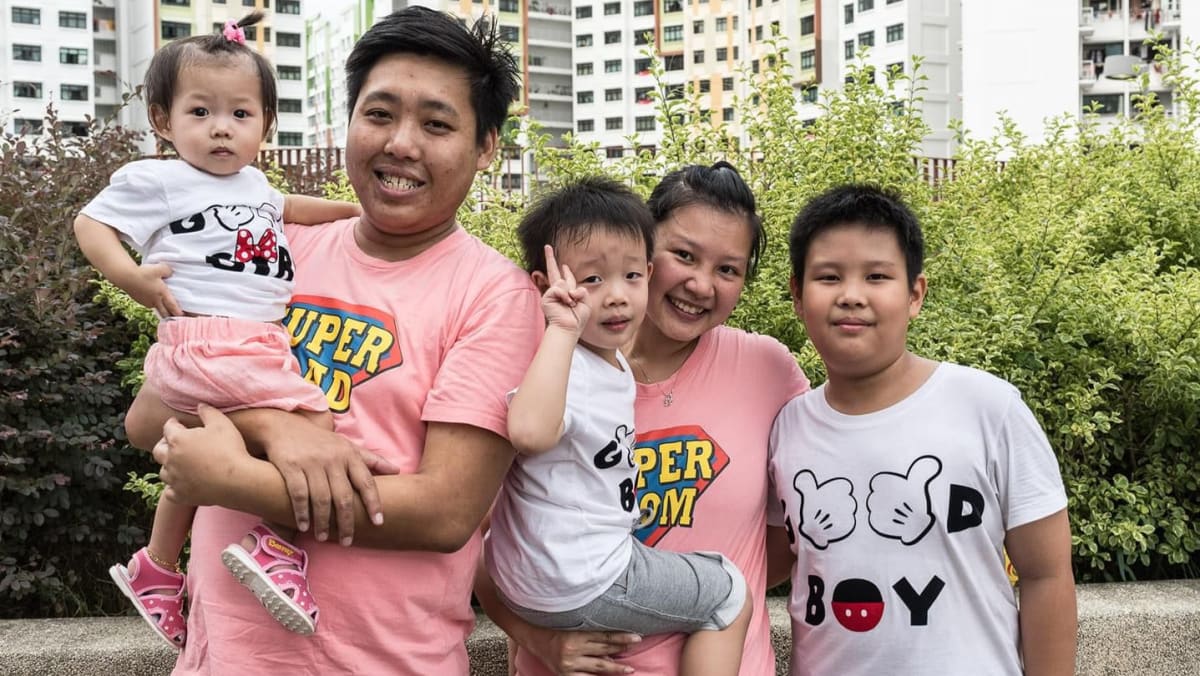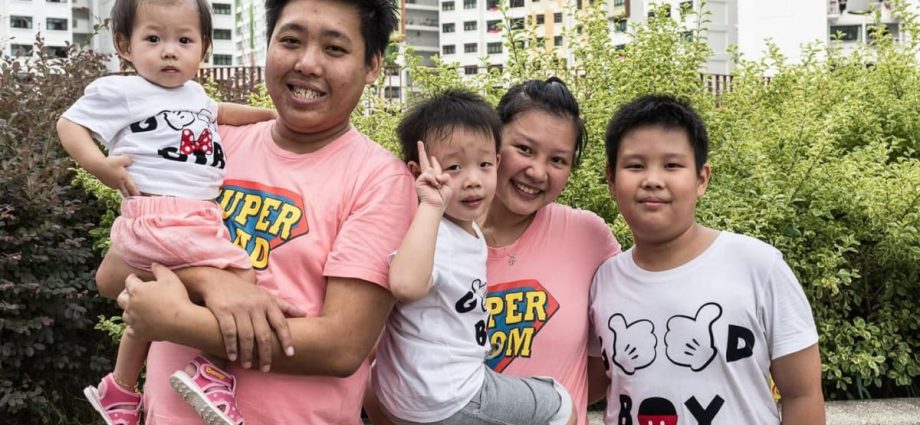
In Jovan’s case, his condition is genetic, afflicting both his paternal grandmother and father.
Years before Jovan became the youngest person to receive the heart pump, his father Jason Ho was the youngest person in Singapore to have a heart transplant, at the age of 19 in 2006.
After that life-changing procedure, Mr Ho went on to marry his wife Cindy Lim and father three children with her – Jovan, Javier and Jovelynn. He lived 15 more years after the transplant, before dying in 2021 at the age of 34.
Ms Lim said that while her husband’s death was sudden – he collapsed at home without any warning signs – his general life expectancy was always known.
What the family was utterly unprepared for was the death of their two-year-old daughter, Jovelynn, from the same disease in 2018.
CODE BLUE
When Jovelynn started feeling lethargic one day in 2017, her parents thought it was the stomach flu. They gave her medicine and let her stay at home.
After she felt better, they sent her back to infant care. That morning, the teacher called her parents to inform them that their daughter did not wake up from her nap to drink milk.
Later that afternoon, the teacher called again. This time, Jovelynn was not well and seemed to be turning blue.
Ms Lim immediately took her daughter to the hospital. The girl appeared fine when her mother picked her up from infant care and was also fine when examined by a triage nurse at the hospital.
But when they were about to leave, Jovelynn turned blue again. Ms Lim ran back to the triage nurse. Her daughter received immediate medical attention and was admitted.
“In less than one hour, all of a sudden, they announced her bed, her room and mentioned a code blue,” said Ms Lim. Code blue refers to a situation where a patient is in cardiac or respiratory arrest.
In just a few hours, the once happy and healthy baby girl was a patient in the intensive care unit (ICU).
The next day, the parents received more bad news – Jovelynn’s heart function had dwindled to 20 per cent. The only treatment option was to put her on medication.
“The first thing (that) came to me was like, 20 per cent? How long can it last? It’s not like a battery that we can recharge or anything,” said Ms Lim, tearing up.
After a week in the ICU, Jovelynn’s condition improved and doctors moved her to a step-down unit. She stayed there for another week before being discharged.
But this was not the end of the family’s ordeal. In the ensuing months, the hospital’s cardiac unit followed up closely with Jovelynn, who was intermittently warded whenever she suffered symptoms.
Eight months after suffering her first bout of illness during infant care, she died.

